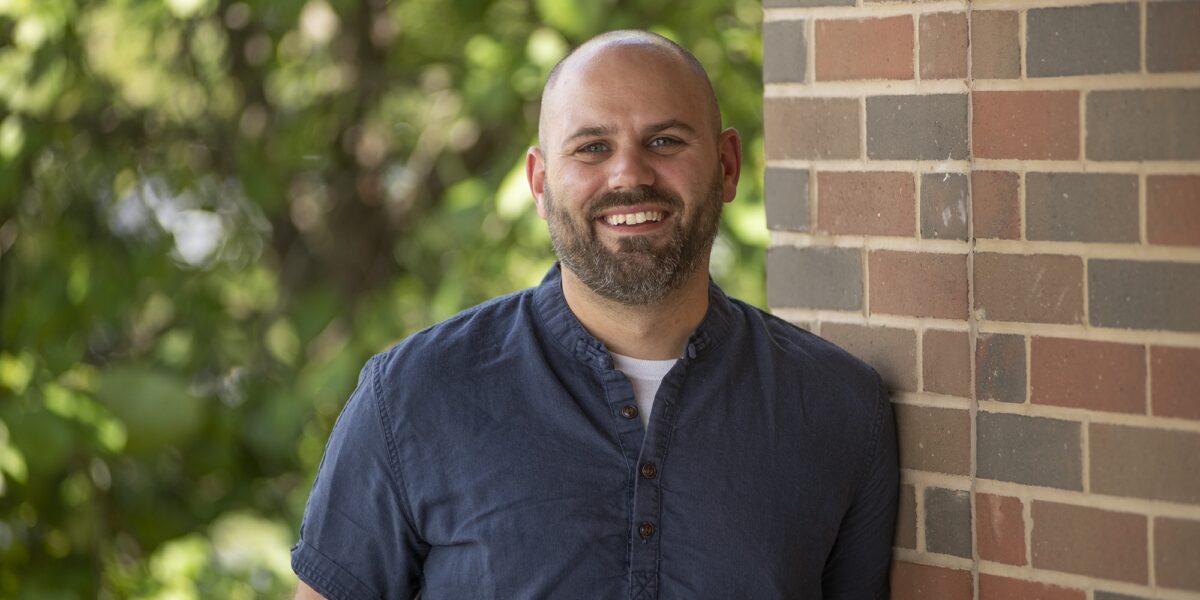Every organization has a purpose; an answer to the deceptively simple question, "Why?" At Mennonite Mission Network, that "why?" is to lead, mobilize and equip the church to participate in holistic witness to Jesus Christ — across the street, all through the marketplaces and around the world.
In this new Q&A series, Mission Network asks staff members to consider their role in the agency, and how they see their daily work joining into what God is doing around the world.
This week, Eric Frey Martin reflects on his role as Interim Director for Constituent Engagement.
-What brought you to your role with Mennonite Mission Network?
The winding road that led me here, I suppose, started when my wife and I first entered into the Mission Network ecosystem by becoming international workers in Colombia. After our three-year term, I was hired half time to do recruiting while I finished up my seminary studies. From there, I was hired full time to do recruitment and church relations. Through the restructuring I found myself in the role of Constituency Engagement Representative and eventually in my current role.
-What is your favorite part of your role with Mission Network?
My favorite part of my role with Mission Network is that I get to relate to constituents across the church. I have a unique privilege in that I often get to be the one to hear stories of people’s time with Mission Network or predecessor agencies as I connect with churches and conferences. In addition, I sometimes get to enter the sacred spaces of discernment that happen when someone is considering service through one of Mission Network’s programs. I also love being part of meetings in which we wrestle with what it means to be part of God’s mission and what that looks like.
-How has your perspective on your role with MMN changed over your time with the agency?
I think that my perspective on my role is in some ways constantly changing. I am always being confronted with new challenges and always meeting new people and connecting with new churches which adds to my perspective of who our constituents are and how they interact with God’s mission. I think that my perspective on mission continues to evolve as we as Mission Network staff interact with different partners, gain knowledge, practice anti-racism and de-colonizing; these all continue to push me into new ways of working in my role towards this greater vision of what mission can and should be.
–How do you view your role with MMN fitting into God’s mission for the church?
I think that most Christians can agree that as we learn from and encounter God, scripture and Jesus’ life and teachings that it evokes a response not just in our beliefs but in the way we live our lives. My hope is that my role helps people actualize faithful responses to join in the mission of God, not just during their time engaging with our programs or resources, but that those experiences catalyze an ongoing response throughout their lives that looks like God’s call in Micah 6:8 to love mercy, seek justice, and walk humbly.
-What is something that has surprised you about your role with MMN?
A surprise in my role is realizing the complexity of systems of oppression and how much that is related to the work we try to carry out as we join God’s mission. In this job, our staff wrestles deeply with points of inequity because they are inextricably linked to how we show up in the world to carry out God’s mission which cares deeply about injustice. Our jobs are fraught with the constant burden of testing ourselves to see if what we are attempting to do is born out of God’s desire for justice and shalom or our desires that derive from our perspectives, which are always only partial. I say this as a positive about our work, because I think this represents the tension that all followers of Christ are called into: the tension of inhabiting a particular space but living into a gospel that is open to people in all spaces; the tension that causes us to recognize the mutuality that we have with all people and indeed all of creation; the tension that makes us reject the urge to divide ourselves into "us and them" and to recognize that there is no "us and them," but only "us."







